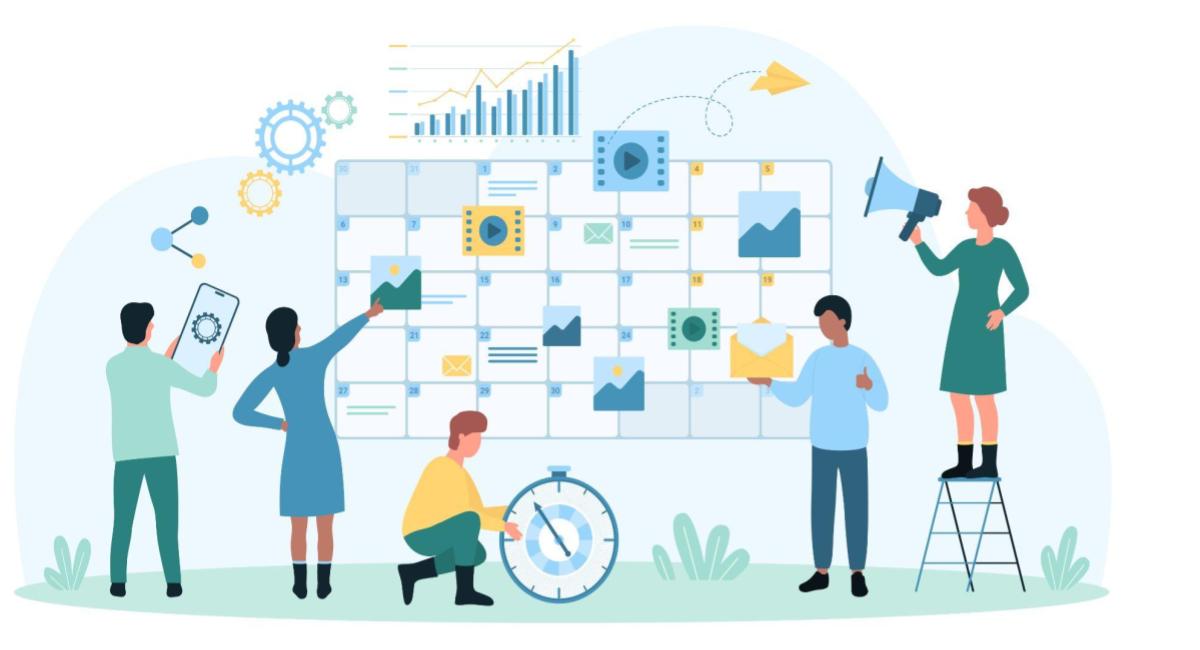5 min read time
What do a basketball team chasing a title and an organization striving to expand its influence in its field have in common?
More than you might think.
Behind every high-performing organization lies a clear strategy for generating, organizing, and managing knowledge to drive results. That’s what we call a knowledge agenda, a purposeful plan that aligns knowledge management strategy and priorities with institutional goals to inform decisions and actions..
In this article, we share a practical playbook built around five core plays: Align, Assess, Consult, Prioritize, and Plan. Together, these steps can help organizations move beyond fragmented efforts, offering a structured yet flexible approach to design knowledge agendas that are aligned with strategic goals, especially in complex environments where clarity, coordination, and impact are critical. But even the best playbook needs the right conditions to succeed. That means applying each step with intention: bringing in diverse perspectives, focusing on what truly matters for decision-making, and ensuring that knowledge leads to meaningful action and outcomes.
Just like in basketball, a successful team relies on strategy, teamwork, and the ability to adapt and execute under pressure. Increasingly, winning strategies depend not only on human insight, but also on the smart use of Artificial Intelligence (AI). When applied thoughtfully, AI can accelerate each stage of your knowledge agenda planning process, from scanning the landscape to ranking priorities. But just like in sports, the best results come when technology supports human judgment, not replaces it. In the plays that follow, we’ll lay out the core of our playbook and show how AI can enhance your strategy while keeping human insight at the center of the game.

Play 1: Align – Set Your Vision, Purpose, and Strategic Objectives
Every great team starts with a goal. They don’t just show up to play, they come to win.
The same goes for knowledge agendas. As basketball teams shall act with intent, knowledge agendas are about defining that ultimate intent (vision, purpose, and strategic objectives), so everyone is moving in the same direction. It all begins with alignment: define a bold vision, clarify your purpose, and set strategic objectives that guide decision-making. Think of it like focusing an aspirational idea, such as “Empower a new generation to shape a better society”, into more tangible goals like “Foster ethical and responsible AI use in education.”
This stage is rooted in human leadership and creativity. AI will not replace judgement and direction, but it can support the process by surfacing insights, identifying patterns, and helping you refine your thinking.
This clarity sets the tone for everything that follows.
Play 2: Assess – Know Your Court
A coach wouldn’t plan plays without understanding the court. What’s the terrain? Where are the open spaces? Where are the obstacles?
In the knowledge world, this means identifying what you already know, where insights are missing, and what opportunities lie ahead. Tools like SWOT analysis, surveys, bibliometric studies, or lessons learned from previous projects can help to get a 360-degree view.
AI can be your scout too, helping surface patterns, map flows, and analyze at scale. You may be able to use tools like natural language processing, document clustering, or semantic search. With the right prompts, AI can dramatically reduce analysis time, augmenting your insight, not replacing it. For example, you can ask: “Summarize key themes from this set of project reports,” or “What knowledge gaps emerge across these research briefs?”
Play 3: Consult – Listen to Your Team (and Fans)
No team wins alone. In addition to the players, there are coaches, analysts, doctors, owners, and fans.
Similarly, an effective knowledge agenda needs a range of voices. It’s important to engage policymakers, researchers, practitioners, journalists, members of civil society and the private sector through interviews, workshops, and networks. Bringing stakeholders in early stages builds ownership and ensures relevance. The most successful agendas are co-created, not handed down.
AI can help summarize stakeholder inputs and surface emerging themes, but the trust-building conversations still belong to you.
Play 4: Prioritize – Draft Your Most Valuable Knowledge (MVK)
Just like in the NBA Draft, you can’t have it all. You must choose wisely.
This is where you identify your Most Valuable Knowledge, the themes that align with strategic objectives and meet real needs. Criteria might include urgency, impact, or feasibility. Whether you use a simple binary method (e.g. yes or no), a scoring system, a 2×2 matrix or a more complex pairwise comparison method (e.g. Analytic Hierarchy Process), the goal is the same: focus on knowledge that can move the needle. Practical tools like the Eisenhower Matrix for urgency vs. importance, or Excel-based scoring grids can also help structure this step.
On the other hand, AI tools can help cluster, score, and visualize priorities, but your strategic filter is what makes it meaningful.
Play 5: Plan – Design the Game Plan
You’ve prioritized your Most Valuable Knowledge. Now, what’s the game plan?
An action plan brings strategy to life. It should include key activities, who’s responsible, what success looks like, and how much it’ll cost. And remember, this isn’t a static plan. Like any coach, you need to adjust as the season evolves. Your knowledge agenda is a living document meant to flex, adapt, and respond to new priorities.
Additionally, with quality inputs, AI can help automate planning steps like drafting timelines or suggesting activity lists, which frees up time to focus on execution and learning.
Final Word: Play Smart, Play Together
As Michael Jordan once said, “Talent wins games, but teamwork and intelligence win championships.”
Today, intelligence means combining human judgment with the right use of AI. Knowledge agendas aren’t just about collecting data or publishing reports. They’re about bringing people together, making better decisions, and driving real-world impact.
That’s how we win, together: through teamwork, shared purpose, and the smart use of AI.
Have you tried any of these core plays? Comment in the box below your experience and opinions!
By Fernanda Camera and Adela Barrio


Leave a Reply